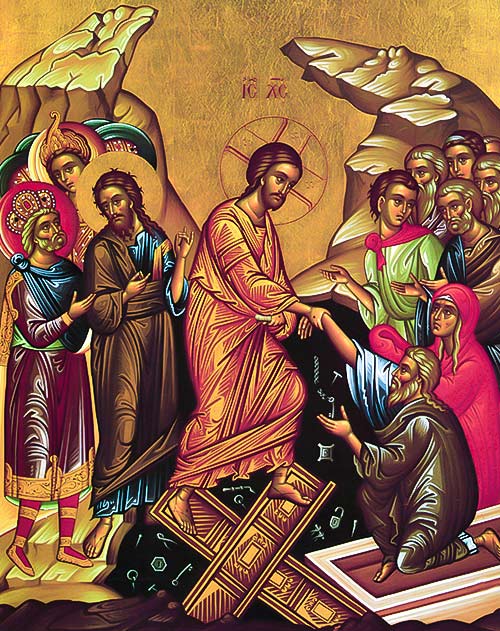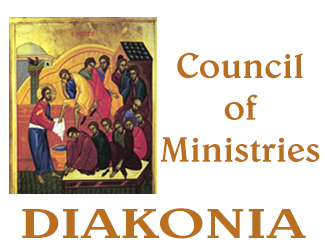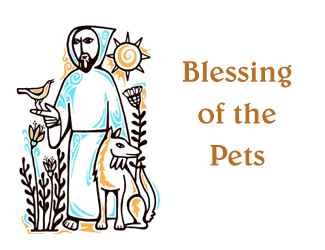Recovering the Lost Art of Fasting
This is the title of an article that Dr. Constantine Kokenes sent me, as he regularly sends me articles since he is a voracious reader. It was a lengthy compendium on the history, development, loss of and recovery of the churches’ discipline of fasting; mainly in the west, but with a few shoutouts to the Eastern Churches and their practice of fasting.
We trace the roots of fasting back to Christ’s saying, “when you fast (not if you fast), do not be somber like the hypocrites, for they disfigure their faces to show men they are fasting. Truly, I tell you they already have their full reward. But when you fast anoint your head, and wash your face, so that your fasting will not be obvious to men, but only to your father, who is unseen. And your father, who sees what is done in secret, will reward you.” Matt 6:16-18
The author of the article traces the development of fasting through the centuries and regales its benefits to the reader, its physical as well as spiritual benefits. Physically, we become, when we are in a fasting period, more efficient in our thinking and energetic in our activities when we are not weighed down by heavy foods; our systems function better. In the spiritual realm, we are not attacked by the passions of lust and gluttony, when we are not over satiated, and made, ‘randy’, by heavy meats and artificial hormones. Our spirit is allowed to be preeminent in our being over our bodily desires. As Saint Augustine says in the fourth century, ”Fasting cleanses the soul, raises the mind, subjects ones flesh to the spirit, renders the heart contrite and humble, scatter the clouds of concupiscence , strong, sexual desire, quenches the fire of lust, and kindles the true light of chastity.”
In fact, the seasons of fasting in the church, Wednesdays and Fridays, 40 days of Great Lent, the Apostles fast, the Dormition fast, and Advent, were universally followed by the Church. As Saint Basil the Great writes “there is no island, no continent, no city or nation, no distant corner of the globe, where the proclamation of the Lenten fast is not listened to. Armies on the March and travelers on the road, sailors as well as merchants, all alike hear the announcement and receive it with joy. Let no man then separate himself from the number of fasters, in which every race of mankind, every period of life, every class of society is included.”
The relaxation of the habit of fasting slowly eroded into making it optional and reduced it to Ash Wednesday and Good Friday in the West.
The benefits of fasting connected with prayer and almsgiving were relinquished to the trash, heap of convenience, relaxed spiritual rigor, set up unhelpful trends, and made followers of Christ, lethargic and apathetic towards the vitality of spiritual health. Everyone is doing it became the mantra or this case ‘no one is doing it’. And Pope Benedict the 14th almost sounds prophetic in 1741. When he writes “Should mankind grow remiss in their observance of Lent it would be detrimental to God ‘s glory, a disgrace to the Catholic religion, and a danger to Christian souls. Neither can it be doubted that such negligence would become the source of misery to the world, of public calamity, and a private woe. Therefore, the author advocates for turning to the east where the practice was never lost. Even the Eastern right Catholic still held to the practice with zeal.
The fact is that fasting in the Eastern Church amongst the nominal Orthodox Christians has also fallen into disuse. My friend and I during the fast, went out to a restaurant in Greece for lunch and I asked if there was any fasting food on the menu. The young man laughed at us and said you're kidding, no one does that anymore. Only amongst the devoted 10% of the faithful in Greece is fasting taken seriously which is significant. On the books it is still there but in practice it is not followed. That is a shame. It means we are not benefiting from extended periods of prayer, fasting, and almsgiving, that the church provides, which then results in what might be described as a Moralistic Therapeutic Deism in 21st century American religion.
It is described in the book The Religious and Spiritual Lives of American Teenagers by Christian Smith and Melinda linguist Denton.
"[9] The authors describe the system as being "about providing therapeutic benefits to its adherent" as opposed to being about things like "repentance from sin, of keeping the Sabbath, of living as a servant of a sovereign divine, of steadfastly saying one's prayers, of faithfully observing high holy days, of building character through suffering…"[10] and further as "belief in a particular kind of God: one who exists, created the world, and defines our general moral order, but not one who is particularly personally involved in one's affairs – especially affairs in which one would prefer not to have God involved."[11]
The remoteness of God in this kind of theism explains the choice of the term deism, even though "the Deism here is revised from its classical eighteenth-century version by the therapeutic qualifier, making the distant God selectively available for taking care of needs." It views God as "something like a combination Divine Butler and Cosmic Therapist: he's always on call, takes care of any problems that arise, professionally helps his people to feel better about themselves, and does not become too personally involved in the process."[12]
The authors state that "a significant part of Christianity in the United States is actually only tenuously Christian in any sense that is seriously connected to the actual historical Christian tradition, but has rather substantially morphed into Christianity's misbegotten stepcousin, Christian Moralistic Therapeutic Deism."[13] Kenda Creasy Dean, author of the 2010 book Almost Christian: What the Faith of Our Teenagers Is Telling the American Church.[14] notes, "The problem does not seem to be that churches are teaching young people badly, but that we are doing an exceedingly good job of teaching youth what we really believe: namely, that Christianity is not a big deal, that God requires little, and the church is a helpful social institution filled with nice people…"[15] She goes on to say that "if churches practice Moralistic Therapeutic Deism in the name of Christianity, then getting teenagers to church more often is not the solution (conceivably it could make things worse). A more faithful church is the solution… Maybe the issue is simply that the emperor has no clothes."[16]
Moralistic therapeutic deism is often inclusive of different religions.[9] As one teenage[17] study participant said,
Morals play a large part in religion. Morals are good if they're healthy for society. Like Christianity, which is all I know, the values you get from, like, the Ten Commandments. I think every religion is important in its own respect. You know, if you're Muslim, then Islam is the way for you. If you're Jewish, well, that's great too. If you're Christian, well good for you. It's just whatever makes you feel good about you.[9] 1
So, not only has Christ been taken out of Christmas he has been taken out of Christianity, which then becomes a system that “makes you feel good about you”; rather than about the way we begin vespers “Come let us worship and bow down before God our King, Come let us worship and bow down before Christ God our King, Come let us worship and bow down before Him, Christ our King and God. They are not the same.
So, as we enter this period of fasting and prayer, we should reflect on why we are doing what we are doing. This practice was given to us by God and maintained by the church over all these millennia. It was not for naught that our forefathers and mothers kept the faith alive in the most trying and difficult periods of history, but for our benefit. Enter this Great Lent with God’s help and rely on Him for your accomplishments.
Fr. Anthony
1 Taken from Wikipedia https://en.m.wikipedia.org/wiki/Moralistic_therapeutic_deism#:~:text=It%20teaches%20that%20central%20to%20living%20a%20good%20and%20happy%20life%20is%20being%20a%20good%2C%20moral%20person.%22




 Saturday, March 9th at 10:00 a.m. following the Divine Liturgy and Saturday of Souls Memorial at 8:30a.m.
Saturday, March 9th at 10:00 a.m. following the Divine Liturgy and Saturday of Souls Memorial at 8:30a.m.  Sunday of Orthodoxy is
Sunday of Orthodoxy is 




